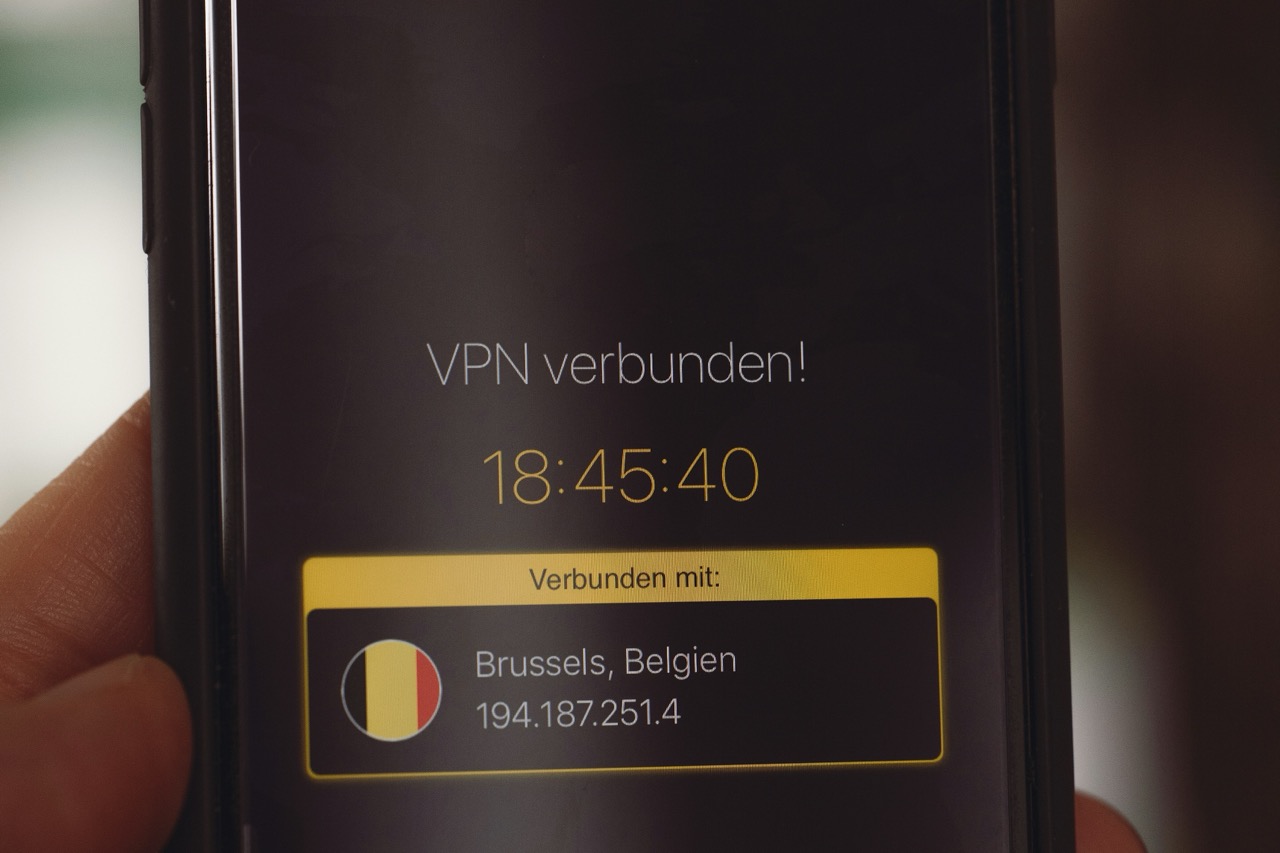In the digital age, torrenting has become a popular method for sharing and downloading files. However, it comes with significant risks, particularly regarding privacy and security. Many users turn to Virtual Private Networks (VPNs) to safeguard their online activities, but the effectiveness of a VPN in protecting users while torrenting remains a topic of discussion. This article delves into the intricacies of VPN technology, its features tailored for torrenting, the risks involved in torrenting without a VPN, and best practices for ensuring secure downloads.
Understanding VPN Technology: How It Works for Torrenting
VPN technology creates a secure tunnel between the user’s device and the internet by encrypting data traffic. This encryption obscures the user’s IP address, making online activities anonymous. When torrenting, this becomes essential, as it helps to hide the user’s identity from prying eyes, such as ISPs and potential copyright enforcers. A VPN routes the user’s internet connection through a server located in a different geographical location, effectively masking the user’s actual location.
When a user initiates a torrent download through a VPN, the torrent client communicates with peers and trackers through the VPN server rather than directly. This means that the IP addresses associated with the torrent downloads are not linked back to the user’s actual IP address, thereby providing a layer of protection against monitoring. However, not all VPNs are created equal; their effectiveness can vary based on the level of encryption, logging policies, and overall service reliability.
Moreover, VPNs can significantly improve download speeds in certain scenarios, especially if throttling by ISPs is a concern. Some ISPs deliberately slow down torrent traffic to conserve bandwidth or discourage users from using their services for downloading large files. By using a VPN, users can bypass these restrictions, potentially leading to improved performance while torrenting.
Key Features of VPNs That Enhance Torrenting Security
Several key features of VPNs are instrumental in enhancing security while torrenting. First and foremost is the use of strong encryption protocols, such as OpenVPN or WireGuard, which ensure that data transmitted during torrenting activities remains unreadable to outside observers. Strong encryption prevents any interception of data packets, making it exceedingly difficult for anyone to discern the nature of the data being exchanged.
Another essential feature is a strict no-logs policy. This means that the VPN provider does not retain records of user activity, which is critical for privacy-conscious individuals. If a VPN retains logs, it may be compelled to share this information with authorities during a legal investigation. Therefore, choosing a VPN that operates under a strict no-logs policy is crucial for users engaged in torrenting, as it ensures that their online activity remains confidential.
Additionally, features such as DNS leak protection and a kill switch further bolster security while torrenting. DNS leak protection prevents the operating system from making DNS requests outside the VPN tunnel, ensuring that users’ online activities remain private. A kill switch, on the other hand, automatically disconnects the internet if the VPN connection drops, preventing any data from being transmitted unencrypted. Together, these features create a robust security framework for torrenting activities.
Risks of Torrenting Without a VPN: A Comprehensive Overview
Torrenting without a VPN exposes users to numerous risks, primarily concerning privacy and legal repercussions. One significant risk is the visibility of the user’s IP address to other users in the torrent swarm. This means that anyone participating in the same torrent can see the user’s IP address, which can lead to potential harassment or legal action from copyright holders. In many countries, copyright infringement can result in hefty fines or even legal action against individuals found sharing copyrighted material.
Additionally, ISPs can monitor torrenting activity, which often leads to throttling or intentional slowdowns of internet speeds for users engaging in such activities. Some ISPs may even send warning letters to users suspected of torrenting, which can escalate to more severe actions, including account termination. Without a VPN, users have no protection against these invasive practices, leaving them vulnerable to surveillance and punitive measures.
Moreover, the risk of malware and malicious software is heightened when downloading torrents. Many torrent files can be bundled with harmful software that can compromise the user’s device and personal data. While a VPN does not directly protect against malware, it can provide an additional layer of anonymity, diminishing the chances of targeted attacks based on the user’s known IP address. In the absence of a VPN, users are more likely to experience these risks unmitigated.
Evaluating VPN Providers: What to Look for When Torrenting
When selecting a VPN provider for torrenting, users should consider several critical factors to ensure optimal performance and security. First, the provider’s privacy policy is essential. A reputable VPN should have a clear, strict no-logs policy, meaning it does not collect or store any user data that could be traced back to individual users. This not only protects user privacy but also limits the provider’s liability in the event of government inquiries.
Another vital criterion is the server network. A large number of servers in various locations allows users to bypass geographical restrictions and avoid potential slowdown issues. Providers with specialized servers optimized for P2P sharing are particularly valuable for torrent users, as they often provide better speeds and reliability. Furthermore, check if the provider supports multiple simultaneous connections, allowing users to secure multiple devices simultaneously while torrenting.
Lastly, an assessment of the customer support services offered by the VPN provider is crucial. Prompt, knowledgeable support can be invaluable when troubleshooting issues related to torrenting or VPN connectivity. Look for providers that offer 24/7 support through multiple channels, such as live chat, email, or phone, ensuring that assistance is readily available whenever it is needed.
Legal Implications of Torrenting: How a VPN Mitigates Risks
Torrenting copyrighted material without permission is illegal in many jurisdictions, which can lead to significant legal consequences for users. Engaging in such activities can result in lawsuits, fines, or account termination from ISPs. In some cases, copyright holders may monitor torrent networks and take action against those sharing their content. Without adequate protection, users can easily find themselves on the receiving end of legal actions stemming from their torrenting activities.
Using a VPN can mitigate some of these legal risks by masking the user’s IP address and providing anonymity. While it does not make copyright infringement legal, it can make it substantially more challenging for copyright enforcers to track down individual users. Many VPN services operate in jurisdictions with strong privacy laws, which can offer additional protection from legal actions. However, users should be aware that not all VPNs can guarantee complete anonymity, and some may be compelled to comply with local laws.
It’s essential to note that while a VPN can provide a layer of anonymity, it does not absolve users of the legal responsibilities associated with torrenting. Users should educate themselves about the laws governing torrenting in their respective countries and understand that engaging in illegal downloads can still result in consequences, even with a VPN in place. Therefore, users should remain cautious and consider ethical implications when torrenting.
Best Practices for Safe Torrenting with a VPN Connection
To ensure safe torrenting while using a VPN, users should follow certain best practices. First, always verify that the VPN is connected before initiating any torrent downloads. Many VPN applications provide a visual indication of the connection status, which can help users ensure they are adequately protected. Additionally, users should regularly check for DNS leaks using online tools to confirm that their real IP address is not exposed while torrenting.
Another essential practice is to use reputable torrent clients that have built-in security features, such as encryption and IP filtering. Opting for clients that are known for their security can further fortify the user’s defense against potential risks. Moreover, users should seek out torrents with a high number of seeders to ensure faster and safer downloads, as less popular torrents may be more likely to contain malicious files.
Finally, users should exercise caution when selecting torrents. Avoiding torrents from untrusted sources can minimize the risk of downloading copyrighted material or harmful software. Reading user comments and checking file details can provide insights into the safety and legality of a torrent. By adhering to these best practices, users can significantly reduce the risks associated with torrenting while enjoying the benefits of a VPN connection.
In summary, while torrenting can pose significant risks to privacy and security, using a VPN provides a viable solution for mitigating these threats. Understanding how VPN technology functions, evaluating key features, and being aware of the legal implications can help users make informed decisions about their online activities. By adopting best practices for safe torrenting, users can enhance their security and enjoy the benefits of file sharing while maintaining their anonymity in an increasingly monitored digital landscape.










